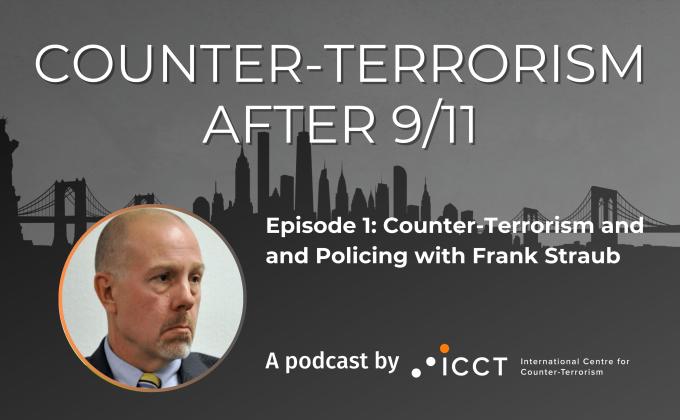Deprivation of nationality in the context of countering terrorism has increasingly been used especially to deal with the so-called foreign fighters. There are two forms of this administrative measure: deprivation of nationality in the interest of national security, and deprivation of nationality after a criminal conviction for a terrorist offence. While deprivation of nationality is generally permitted under very narrow circumstances under international law, many experts and academics have repeatedly objected and raised concerns regarding the stripping of nationality in the interest of national security of persons that are detained in Northeast Syria. Shamima Begum for example left her home country of the United Kingdom (UK) as a teenager to Syria stripped of her British nationality in the interest of national security. In February 2024 the Court of Appeals ruled that the decision to strip her of her nationality was lawful. In a similar vein, Alexander Kotey and El Shafee Elsheikh - both members of the so-called ISIS Beatles cell - were captured by the Kurdish-led Syrian Democratic Forces (SDF) and handed over to the United States (US) in 2018 and ultimately deprived of their British nationality. Both men were eventually sentenced in a US court for their involvement in the hostage taking and execution of American and other foreign citizens.
While administrative measures are often used in the pre-crime space, they are increasingly being used in the post-crime space by imposing supervision orders after release from prison or by revoking nationality. Several States also allow for the deprivation of nationality after a conviction of a terrorist offence, which is seemingly less controversial but also raises serious concerns. This analysis will shed some light on how European countries have deployed this measure, the human rights implications once convicted terrorists have been deprived of their nationality, the effectiveness of this measure in countering terrorism, and eventually offers some concluding remarks.
Conditions and Implications of Citizenship deprivation
A distinction needs to be made between voluntary loss (i.e. automatic loss due to lapse of time, or at the request of an individual to renounce citizenship) and deprivation of nationality carried out by a State. The most common grounds of deprivation of citizenship by a State include obtaining the nationality through fraud, joining a foreign service, prolonged stay abroad, acting against the vital interest of States, being disloyal or lack of a genuine link with the State. Considering the impact of deprivation of nationality, it is only permitted under very narrow circumstances under international law. When considering deprivation of nationality - just like applying other administrative measures that restrict the exercise of human rights such as control orders or house arrest - the measure should meet the minimum requirements of having a legal basis, serve a legitimate purpose, be proportionate, adequate, and necessary, provide meaningful procedural safeguards and finally respect the non-discrimination principle. When these requirements are not met it could constitute arbitrary deprivation of nationality.
Several countries like the Netherlands, Belgium, and France allow for the deprivation of nationality after a criminal conviction of a serious offence, including terrorist offences as these are considered an act of disloyalty to State and/or against the interests of the States. The conditions under which this measure is being applied differs among States. Some States only allow this measure to be applied if a person has been convicted for a certain minimum sentence (Finland), or only if a person is above 18 years (Norway), or only within a certain period of time after the terrorist conviction has become final (Italy). Some countries also accept a foreign conviction – provided that the individual had a fair trial – as a ground to revoke nationality (Austria). In most States revocation of nationality is only possible if this will not result in the person concerned becoming stateless, the exception appears to be Italy.
Human rights considerations
According to Article 15 of the Universal Declaration of Human Rights (UDHR), and numerous international and regional conventions such as the European Convention on Nationality, everybody has the right to a nationality, and no one shall be arbitrarily deprived of their nationality. The right to nationality is a prerequisite to exercise other rights and it is often termed as ‘the right to have rights’. Thus, deprivation of nationality may have a severe impact on other rights, including privacy, family and home, the right to work, and right to health inf form of access to justice.
A recent study we authored focuses solely on female violent extremist offenders in Belgium, Germany, France, and Netherlands and reveals that deprivation of nationality after a criminal conviction for a terrorist offence has been applied numerous times – 29 in the Netherlands, 12 in Belgium since 2012, and 31 in France in last twenty years. Considering that many women also have children, the impact of deprivation of nationality is very severe. The women do no longer have a legal right to stay in the country, loose their national identity number, are no longer entitled to social benefits or are ineligible to apply for jobs, housing, or education. The reality is that several women – or men – are unable to return to the country of the other nationality, either because the country does not cooperate and refuses to issue travel documents, or the country is not safe and the individuals risk being exposed to human rights abuses. In fact, many stakeholders interviewed for the study in the Netherlands expressed their concern that deprivation of nationality is counter-productive and can lead to re-engaging with radical networks.
It appears from recent case-law at the European Court of Human Rights (ECtHR) relating to deprivation of nationality, that terrorism can be considered a legitimate purpose to deprive a convicted person of his or her nationality after a criminal conviction. In Johansen v. Denmark a dual national in Denmark has been convicted for terrorism and subsequently been stripped of his nationality. While the ECtHR recognises the gravity of the crime, the court also concluded that it was ‘legitimate for Contracting States to take a firm stand against terrorism, which in itself constituted a grave threat to human rights.’ In determining the consequences, the court concluded that while the expulsion order indeed interfered with the right to a family life it was justified because it served a legitimate aim.
Another convicted terrorist who was supposed to be deprived of his nationality is the Algerian-born Ali Charaf Damache who acquired Irish citizenship through marriage and was convicted in the US for trying to recruit and train US citizens and sentenced to 15 years imprisonment with the condition of an uncontested removal from the US after serving his sentence. Attempts by the Irish government to revoke his nationality have failed as the Supreme Court ruled that there was no genuine independent oversight available to revoke citizenship of naturalized citizens and repealed section 19(2) and 19(3) of the Irish Nationality Act. This case demonstrates the need to provide for appropriate and meaningful procedural safeguards. Currently a new system is being prepared to improve the procedures which, if adopted, could still lead to the deprivation of nationality of Damache, in which case he would retain his Algerian nationality and be barred from entering Ireland after release from prison.
In practice, some time may pass between a conviction becoming final and applying the deprivation of nationality. This can lead to the situation that the convicted terrorist is already taking part in a rehabilitation and reintegration process. The deprivation of nationality and in particular the expulsion order could significantly impact this process for example when a convicted terrorist is receiving vocational training for a job which may not be available in the country where they would be expelled to. Furthermore, the actual deportation will only take place after the convicted terrorist have served their prison sentence. For this reason the Dutch Probation Service indicated that it is unable to carry out its tasks and assist in the reintegration of the convicted person in the Netherlands if they will be deported upon release from prison. Several of the Dutch municipalities have also expressed serious concerns of the implications of deprivation of nationality.
Avoiding statelessness
Countries that are party to the 1961 Convention on the Reduction of Statelessness have an obligation to prevent statelessness. It appears that only 25 percent of the countries that allow for deprivation based on disloyalty explicitly state that this may not lead to statelessness.
One could argue that a conviction of a membership offence without clearly linking specific criminal activities of an individual within a terrorist organisation that causes harm would meet the threshold of revoking nationality under the provisions mentioned above. Nonetheless, it is questionable whether a person who is convicted for non-violent activities that are remotely linked to the terrorist organisation, such as cooking or running a household or carrying logistics for ISIS in Syria should be considered serious enough for revoking nationality. However, if a person is cumulatively convicted for membership of a terrorist offence and for example enslavement as crime against humanity, then this could be considered as meeting the threshold for several reasons. Firstly, core international crimes, notably war crimes, crimes against humanity or genocide are the most serious offences that are of concern to the international community as a whole. Secondly, when a person is convicted for a core international crime, the underlying acts are clearly attributable to the individual.
Non-discrimination principle
Most countries only apply deprivation of nationality after criminal conviction if this does not lead to statelessness. However, deprivation may (still) lead to violation of the non-discrimination principle. In several countries such as the Netherlands, Belgium, and France deprivation of nationality after a criminal conviction for terrorism is only being applied to persons who hold dual nationality. This measure therefore clearly distinguishes between persons with one and two nationalities. Furthermore, it distinguishes between person who have acquired the nationality at birth or later on through naturalization. For example, in France only persons who have acquired French nationality through naturalization can be stripped of their nationality, due to committing a serious crime, including terrorist offences, either before acquiring the French nationality or within 15 years after having acquired the nationality, provided it does not lead to statelessness. This raises the question of whether the non-discrimination principle is being violated. As pointed out by the Special Rapporteur on Racism during her country visit to the Netherlands, deprivation of nationality policies in the context of terrorism can be “facially neutral, disproportionately affects Dutch people of Moroccan and Turkish descent and therefore runs afoul of international human rights equality and non-discrimination principles.”
While not every form of differential treatment constitutes discrimination, an assessment needs to be made as to whether revoking nationality directly or indirectly discriminates against persons from certain nationalities.
The Ne bis in idem principle
Another issue is whether deprivation of nationality constitutes a violation of the ne bis in idem principle which means that a person cannot be punished twice for the same offence or same underlying act. The purpose of this principle is to provide legal certainty and to avoid that a person is being unduly punished twice.
The ne bis in idem principle is regulated in article 50 of the Charter of Fundamental Rights in the European Union and in article 4 of Protocol 7 to the Convention for the Protection of Human Rights and Fundamental Freedoms, and it prohibits that a person is punished twice for the same underlying conduct in criminal proceedings. The fact that in many countries, deprivation of nationality after a criminal conviction is decided by the executive branch, like in the Netherlands or France, does not automatically exclude a violation of the ne bis in idem principle. To determine whether an administrative procedure is criminal in nature, it is important to look not only at who has the authority to decide, but also at the classification of the measure under national law. In addition, the nature and severity of the penalty should be taken into consideration.
In the case Ghoumid and Others v. France, the European Court of Human Rights (ECtHR) ruled that deprivation of nationality under article 25 of the French Civil Code is not a violation of the ne bis in idem principle, and the procedure of deprivation of nationality is not criminal in nature because it serves a different objective and is punishment for the fact that a terrorist has severed the bond of loyalty to France and that the severity of penalty reflects the severity of the crime. Nonetheless, a careful assessment has to be made in each case to determine severity of measures placed on the individual by taking into account the ties with the country of the other nationality, the impact and difficulties any of the family members face, and the best interests of the children.
Way forward
Even when deprivation of nationality after a criminal conviction for terrorist offences does not lead to statelessness or does not constitute an arbitrary deprivation of nationality, it still raises many human rights concerns. It remains questionable whether deprivation of nationality violates various legal principles including the non-discrimination principle in many individual cases.
In general, courts do not assess the effectiveness of deprivation of nationality as a counter-terrorism measure but look at the lawfulness of the decision. In practice, it is not conducive to reintegration and can be even counter-productive and lead to a convicted terrorist to re-engage with a radical network. Neither does deprivation of nationality reduce the security threat as it does not address the violent extremist ideology of the convicted terrorist. Furthermore, by depriving the nationality, it may prevent a State from prosecuting the so-called foreign fighters for other offences that have been committed during their stay abroad and undermine the State’s obligation to prosecute terrorist offences.
All in all, deprivation of nationality has a symbolic function as it may appease the general public, which has also been by the Parliamentary Assembly of the Council of Europe. States should thus refrain from using deprivation of nationality after a criminal conviction as much as possible and consider amending their legislation and practice of deprivation to ensure it meets the international human rights standards, and that it is not counter-productive to rehabilitation and reintegration efforts.
Such a decision should be preferably made by a judge that did not decide on the conviction of the terrorist offence. Such an assessment should be made on case-by-case and take into account factors like the seriousness of the crimes, the ties the person has with the country of the other nationality, the personal circumstances, whether the person has a family and its impact on the family, and whether the person has made steps to reintegrate into society after conviction. Both the deprivation order and expulsion order need to incorporate sufficient procedural standards.
Furthermore, when a convicted terrorist has been deprived of their nationality, this should not automatically lead to an expulsion order and a no-entry ban. When a person cannot be deported because the country of the other nationality does not cooperate, or if a person cannot be expelled because of the risk of human rights violations in the country of the other nationality, the person should not be issued an expulsion order and declared illegal. This is not only counter-productive and potentially leads the individual to return to a radical network, but also hinders the authorities from monitoring the individual.
Finally, considering the impact of deprivation of nationality – even when it is lawful - it should only be applied to the most serious terrorist offences committed by adults leading to a substantial sentence. This means that a conviction for just membership offences is not suitable. Instead, deprivation of nationality should only be applied to the most serious offences such as plotting or carrying out terrorist attacks or a (terrorism related) conviction for core international crimes.
When a person commits terrorist offences they should be held accountable to the full extent of the law and the penalty should reflect the seriousness of the crime that has been committed. Considering the many implications, revoking nationality during the post-crime phase should be further scrutinized.
This article represents the views of the author(s) solely. ICCT is an independent foundation, and takes no institutional positions on matters of policy unless clearly stated otherwise.
Photocredit: maramade/Shutterstock








